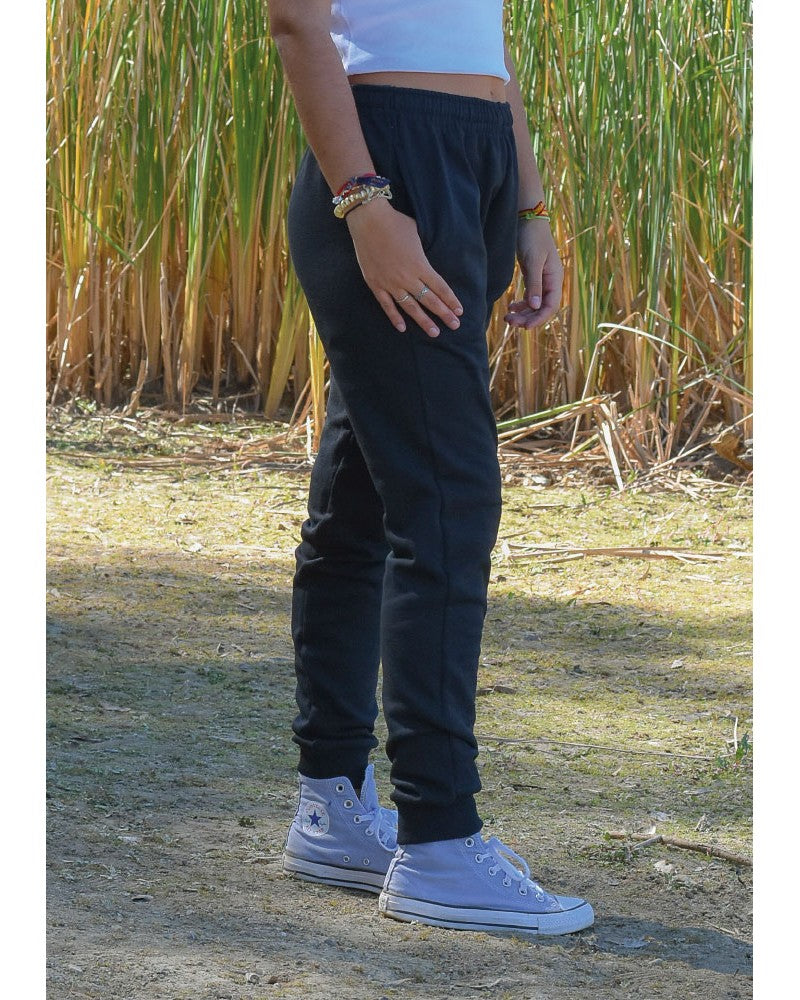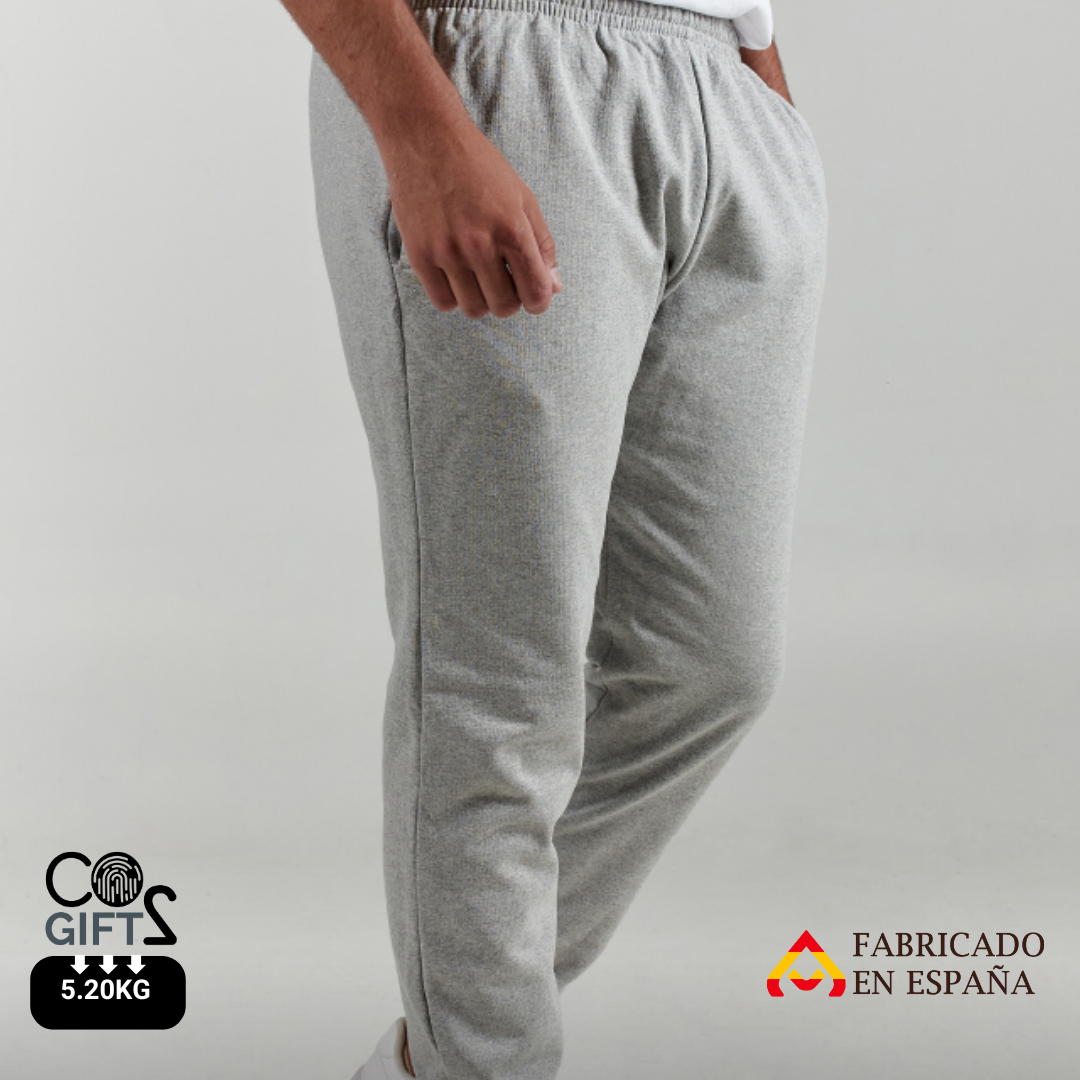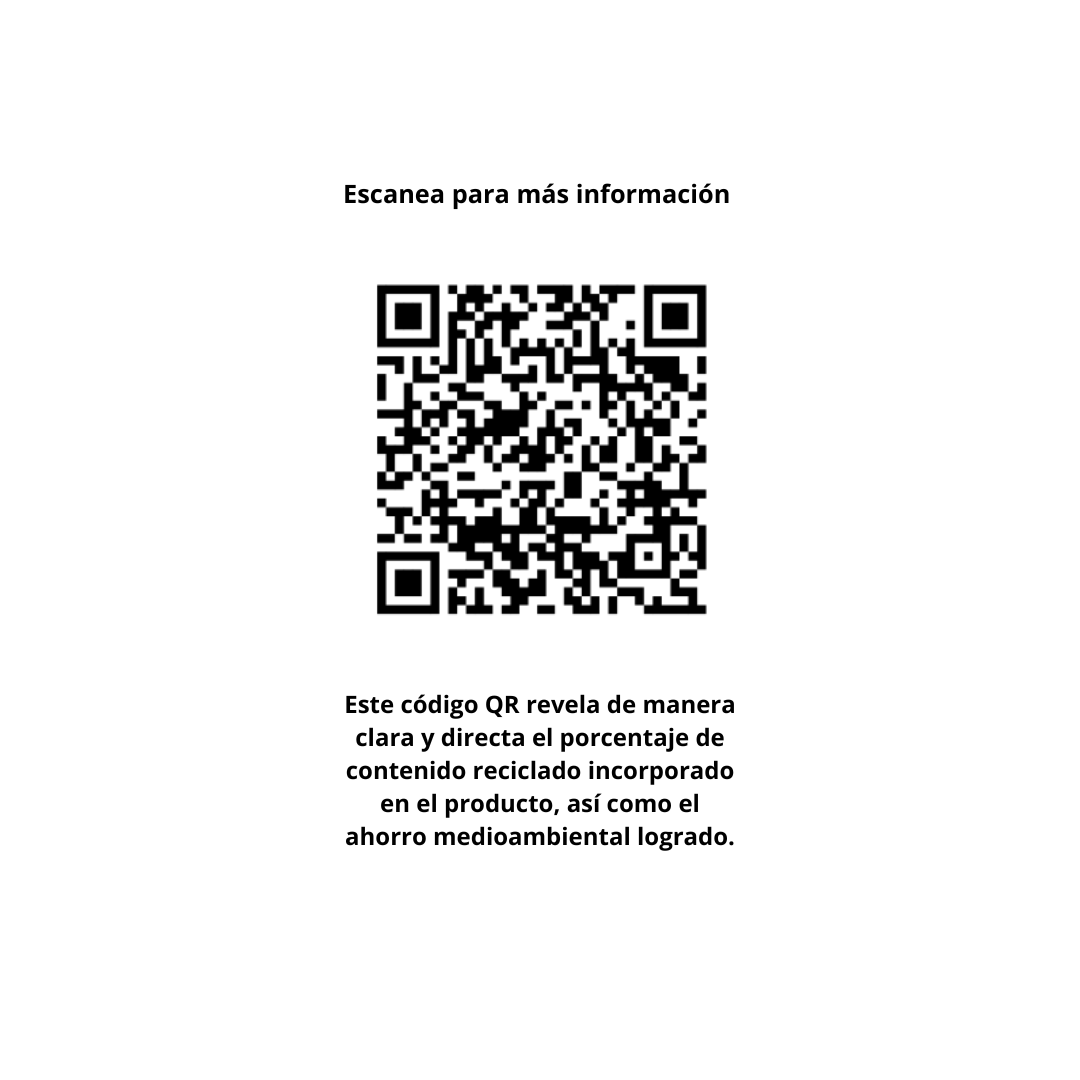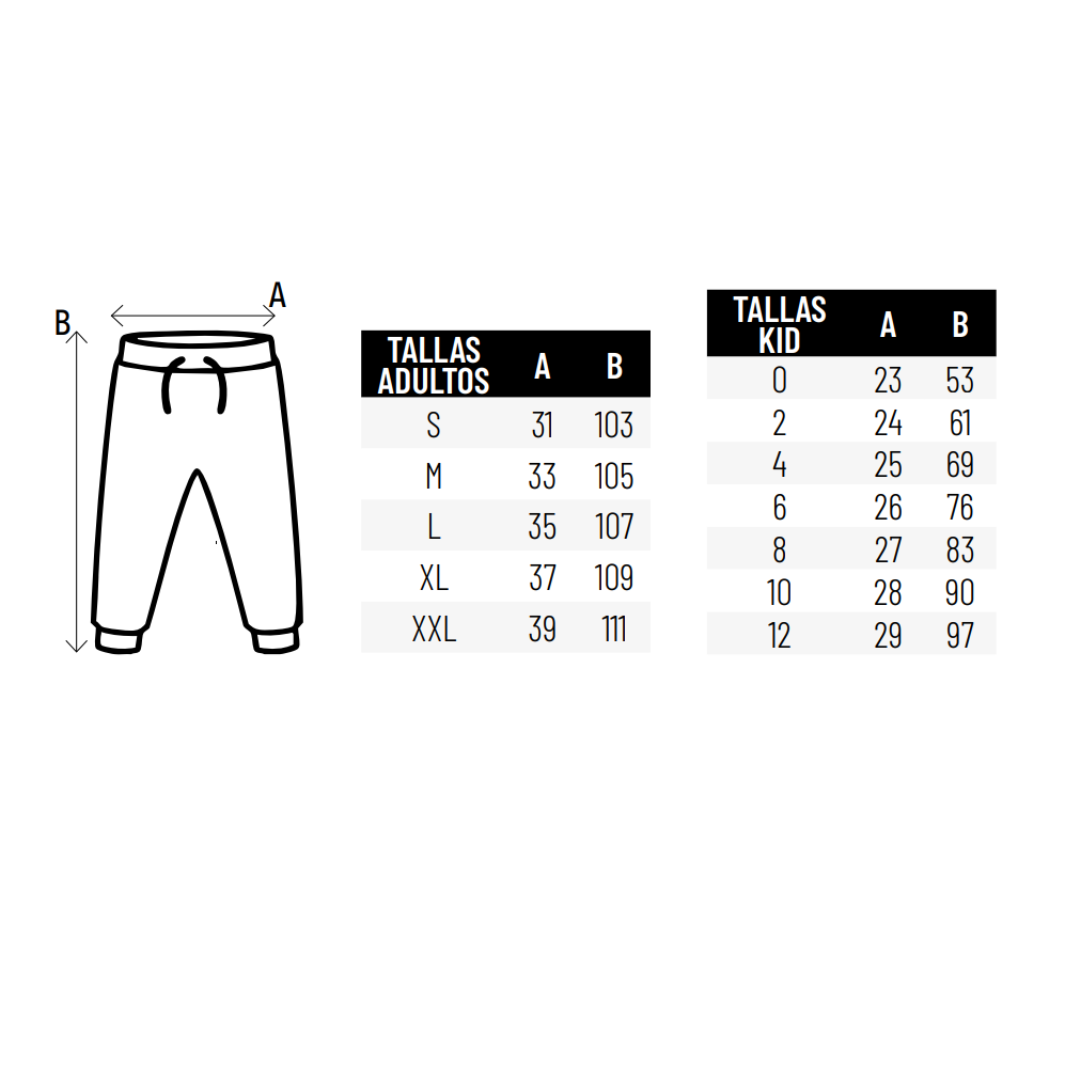ESG FOOTPRINT
- This product has a CO2 footprint of 5.20 Kg-eq
- It helps to reduce 95% of m3 of water equivalent
- It helps reduce phosphate equivalents by 87% . (Eutrophication: Proliferation of algae in an ecosystem due to the excessive release of phosphates and nitrates from the product value chain)
- It contributes to reducing 57 % of MJ. (Depletion of non-living resources, i.e., oil, gas, etc.)
-
Data compared to industry standard*
These eco-friendly jogger pants, customizable with your brand's logo, are ideal as workwear or a gift for a special client. They are highly visible when performing any service or task, and if the service is performed outdoors, the visual impact of your company or organization is amplified. They offer comfort, safety, protection, visibility, corporate branding, and professionalism.
Recycled cotton is the process of converting cotton fabric into fibers that can be used in new textile products. There are two sources: pre-consumer , which includes scraps of yarn and fabric discarded during industrial cutting and sewing processes, and post-consumer , which comes from garments worn by consumers. Recycled cotton is the most environmentally friendly option, as it doesn't have to go through all the cultivation , processing , and other steps involved in producing the final product. For example, 1 kilogram of recycled cotton can save between 10,000 and 15,000 liters of water. It is biodegradable .
Recycled polyester is a synthetic fiber made from recycled polyester bottles or yarn, an alternative to virgin polyester derived from petroleum. It's a sustainable product resulting from the industry's commitment to sustainability, environmental protection, and the circular economy. This material can be combined with other materials to achieve optimal quality for various purposes, such as workwear, sportswear, bags, and more.
MEASURESSML-XL-XXL | 0-2-4-6-8-10-12 years| 260g/m2.
PERSONALIZATION
Consult






